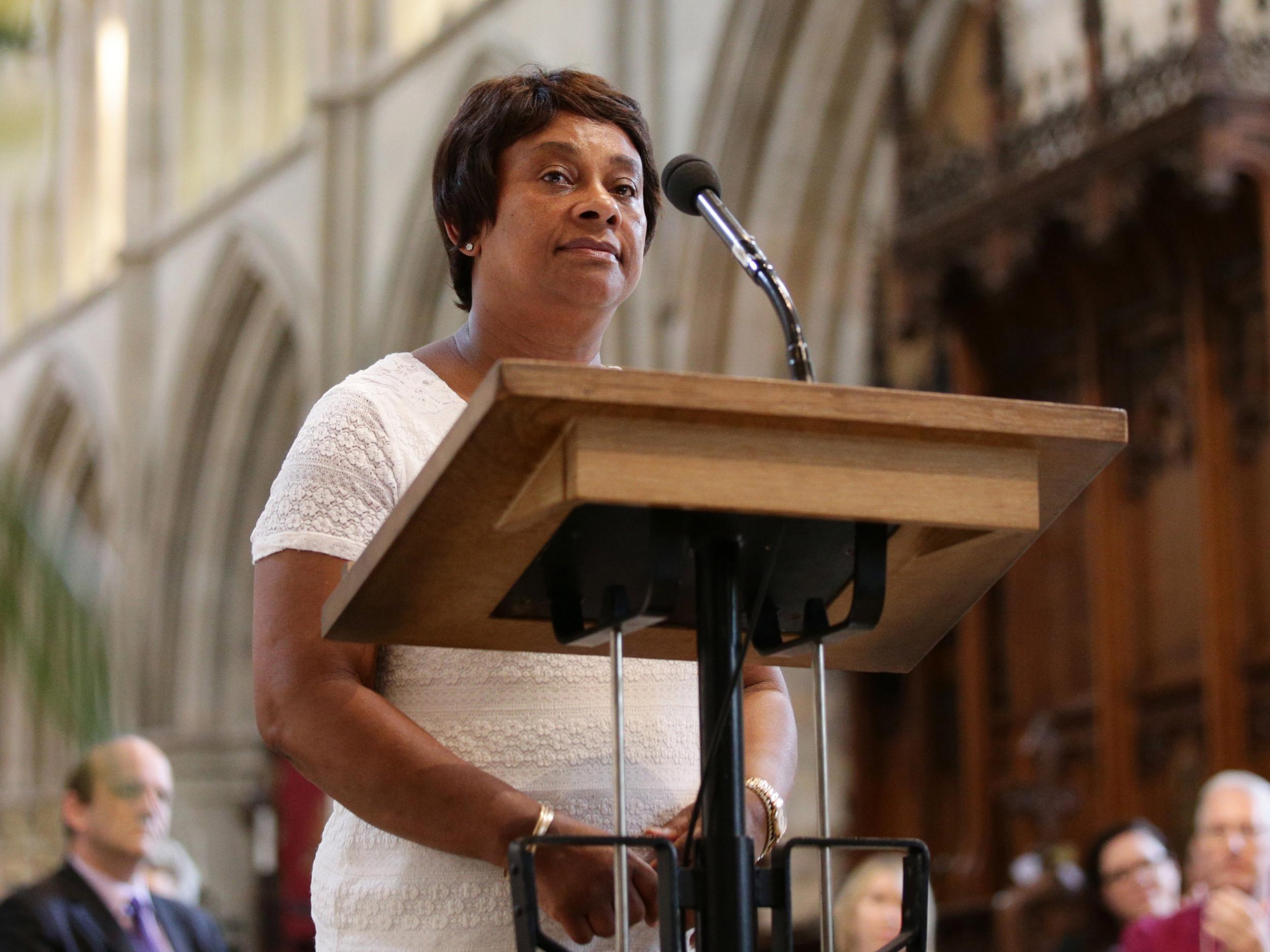'Elements' of Metropolitan Police still institutionally racist, Stephen Lawrence's mother says
'They think because they’ve got the power they should be able to do what they like'
Your support helps us to tell the story
From reproductive rights to climate change to Big Tech, The Independent is on the ground when the story is developing. Whether it's investigating the financials of Elon Musk's pro-Trump PAC or producing our latest documentary, 'The A Word', which shines a light on the American women fighting for reproductive rights, we know how important it is to parse out the facts from the messaging.
At such a critical moment in US history, we need reporters on the ground. Your donation allows us to keep sending journalists to speak to both sides of the story.
The Independent is trusted by Americans across the entire political spectrum. And unlike many other quality news outlets, we choose not to lock Americans out of our reporting and analysis with paywalls. We believe quality journalism should be available to everyone, paid for by those who can afford it.
Your support makes all the difference.Parts of the Metropolitan Police are still institutionally racist, the mother of murdered teenager Stephen Lawrence has said.
Doreen Lawrence said some officers “still don’t get it” and those out on the beat have “no relation” to the community they are policing.
Her 18-year-old son was fatally stabbed by a gang of racists in Eltham, southeast London, on 22 April 1993.
The murder was a watershed moment in modern race relations in the UK, after the subsequent Macpherson Report concluded the police made mistakes and were guilty of institutional racism.
Asked if it was still the case, she told The House magazine: “I think there’s elements still there because they still don’t understand – they still don’t get it – that you cannot treat people like that.”

Baroness Lawrence said stop and search powers have a place but must be “intelligence-led”.
“I think senior officers probably get it, they understand that’s what they need to do,” she added.
“I feel that officers on the beat, they have no relation to the community that they’re policing.
“They think because they’ve got the power they should be able to do what they like – no, you’re not.
“I just feel that those sorts of conversations and that sort of training does not happen in the way in which it should.
“That’s why we have the discourse between the young people and the police officers because they think they can speak down to them, which the kids are not going to put up with.
“So, you have this confrontation all the time.
“The police need to understand that you need the community’s consent to police you.
“If they understood that and had a proper rapport with young people, I don’t think we’d have the problems that we do have with young people and the police.”
Young people are still being “victimised” by the police, she said.
The peer also hit back at comments made by former Met detective Bill Mellish in a BBC documentary, "The Murder That Changed Britain", when he accused her of not smiling as a “gimmick”.
She said: “At the end of the day, what did I have to smile about when my son was murdered and you were being idiots ... What did I have to smile about?
“Every time I hear when they speak, it was like during the court case. One officer said that he wasn’t even offered a cup of tea when he came to my house. Get real.
“So, when you hear those little bit of things, you just think what are we supposed to be doing? Are we supposed to be having a party because my son has been murdered? ‘Come in and have a drink, let me share things with you’.
“It’s like we have no feelings. We, from the black community, things like this should happen to us because you’ve got no feelings whatsoever and we can do what we want, we can say what we like to you and that’s it.”

Join our commenting forum
Join thought-provoking conversations, follow other Independent readers and see their replies
Comments